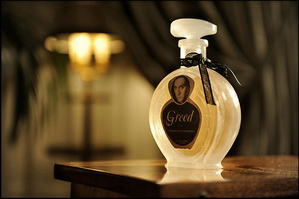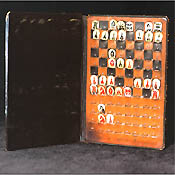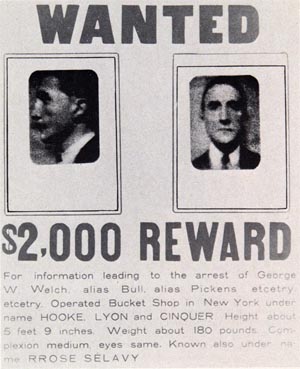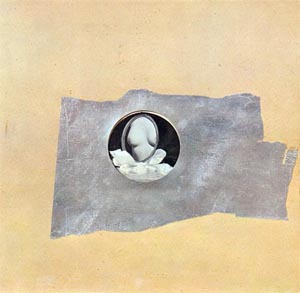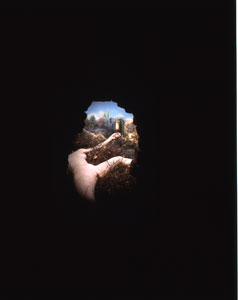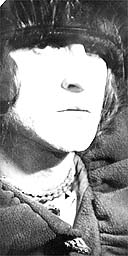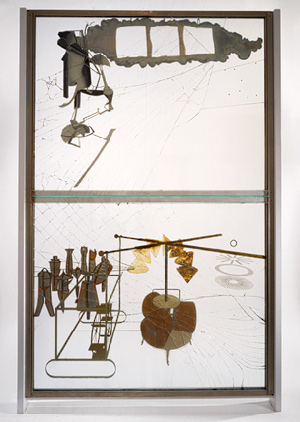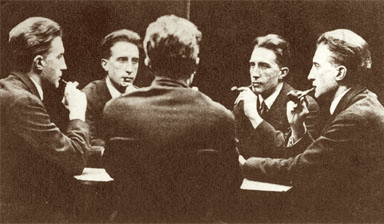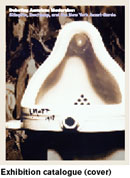Duchampian News & Views
-
Vezzoli’s Greed Premieres in Rome
January 21, 2009 "Milan-based artist Francesco Vezzoli officially launches his new faux perfume, Greed, at Gagosian Gallery in Rome, Feb. 6-Mar. 21, 2009. Described as "a signature perfume for the contemporary moment," Greed is specifically modeled on Marcel Duchamp’s 1921 perfume Belle Haleine, and features on its label an image of Vezzoli in drag, photographed by Francesco Scavullo. A special 60-second commercial for the product, directed by Roman Polanski and starring .. read more... -
We are Duchampians
January 19, 2009 "Duchamp became influential for bringing this lesson of the chess board to the art world, showing that art, like chess, is a set of rules that functions independently of the positive properties of the pieces -- replacing the art object with a bike tire or a bottle rack, for instance. Asking his friends and contemporaries to trade the traditional chess pieces in for their own inventions at the Julien Levy Gallery was, in a way, the beginning the infiltration of his ironic.. read more... -
Art and economics: Duchamp’s postmodern returns
January 19, 2009 "Marcel Duchamp's most radical departure from painting is embodied in his discovery and exploration of the ready-mades (1913-1927), works which usurp the notion of reproduction by highlighting the redundancy of a work of art as a commonplace object. According to Octavio Paz, the ready-made defies a dialectical interpretation of value, since it implies neither its negation nor its affirmation. Conceived as the 'plastic equivalent of a pun,' the ready-made is a mechanism t.. read more...
Marcel Duchamp – Post-ing Modernism -
In the Manner of Duchamp, 1942-47:
January 19, 2009 "In the Manner of Delvaux may seem too slight a work to inaugurate so substantial a reversal in artistic practices and style. After all, the photographic collage did not attract much attention at the time of its creation. But Duchamp was a magician in the economy of small gestures. One of the delights that drew him to the world of chess was the way in which the simple movement of a pawn by one square could rearrange the dynamics of the entire board. In the Manner o.. read more...
the years of the “mirrorical return” -
Etant donnes
January 19, 2009 In his article Private Lives, Public Gestures Jörg Heiser draws a surprising conection between Marcel Duchamp's Étant donnés: 1. La chute d’eau, 2. Le gaz d’éclairage (Given: 1. The Waterfall, 2. The Illuminating Gas)(1946-66) and the movie Rocky (1976). Heiser argues that the lamp in Étant donnés is a reference to the Statue of Liberty, a connection farther established by the phrase "Le gaz d&rs.. read more... -
Rrose Selavy, Man Ray 1921
January 19, 2009"In choosing Man Ray to take a portrait of Rrose Sélavy, Duchamp co-opted the most adept photographer of glamour on behalf of the 20th century’s most celebrated conceptual art. Man Ray gives Rrose the lighting, the sultry look, that made him so in demand in magazines such as Vogue. In a series of photographs in 1921 and later in the mid-1920s, his camera searches for Rrose in Marcel Duchamp, and eventually finds her."
read more... -
Marcel Duchamp
January 19, 2009 "Embodying the intellect of his literary contemporaries Marcel Proust and James Joyce, Marcel Duchamp (1887–1968) has been aptly described by the painter Willem de Kooning as a one-man movement. Jasper Johns has written of his work as the 'field where language, thought and vision act on one another.' Duchamp has had a huge impact on twentieth-century art. By World War I, he had rejected the work of many of his fellow artists as 'retinal' art, intended only to pleas.. read more... -
Art and Synesthesia:
January 19, 2009 " Questioning identity. Marcel Duchamp had taken a mesmerizing photograph of himself, gathered around a table —a co-presence with his additional selves. This multiple-self-portret represents five images of the artist, a mise-en-scène of a brainstorming session with himself. We see a manifestation of introspection, a reflective moment of pause in a circular tango of thoughts. Marcel Duchamp said: 'The individual, man as a man, man as a brain, i.. read more...
in search of the synesthetic experience -
Debating American Modernism
January 19, 2009 "A rich dialogue between the circles of artists associated with American photographer Alfred Stieglitz (1864–1946) and French artist Marcel Duchamp (1887–1968) spurred the development of modern art in the United States between 1915 and 1929. During World War I many European artists, including Duchamp, left their homelands bound for New York, a metropolis thriving with industrial and technological advanceme.. read more...
Stieglitz, Duchamp, and the New York Avant-Garde




